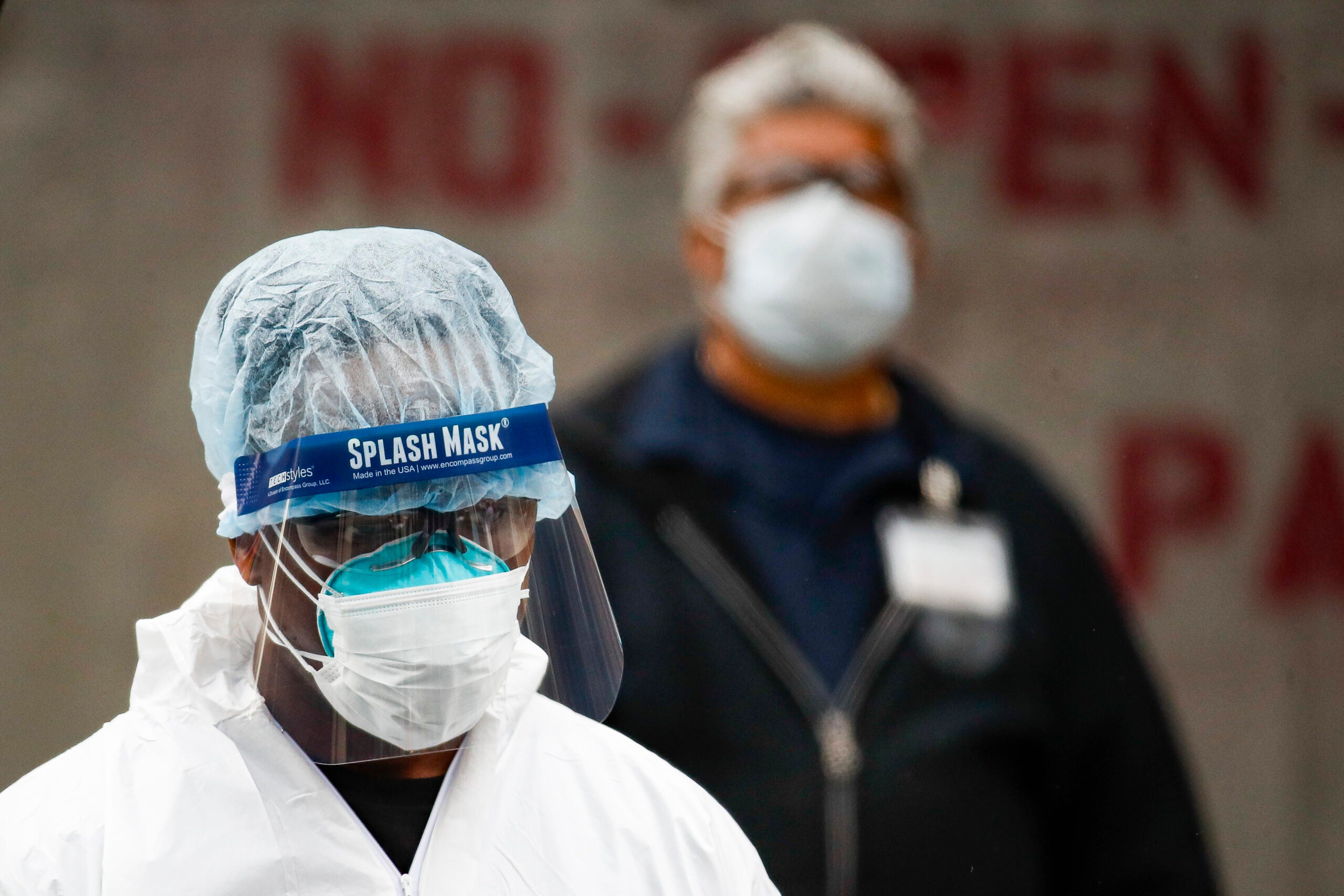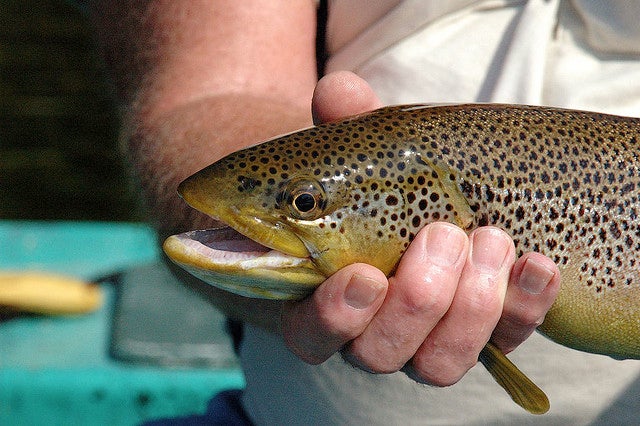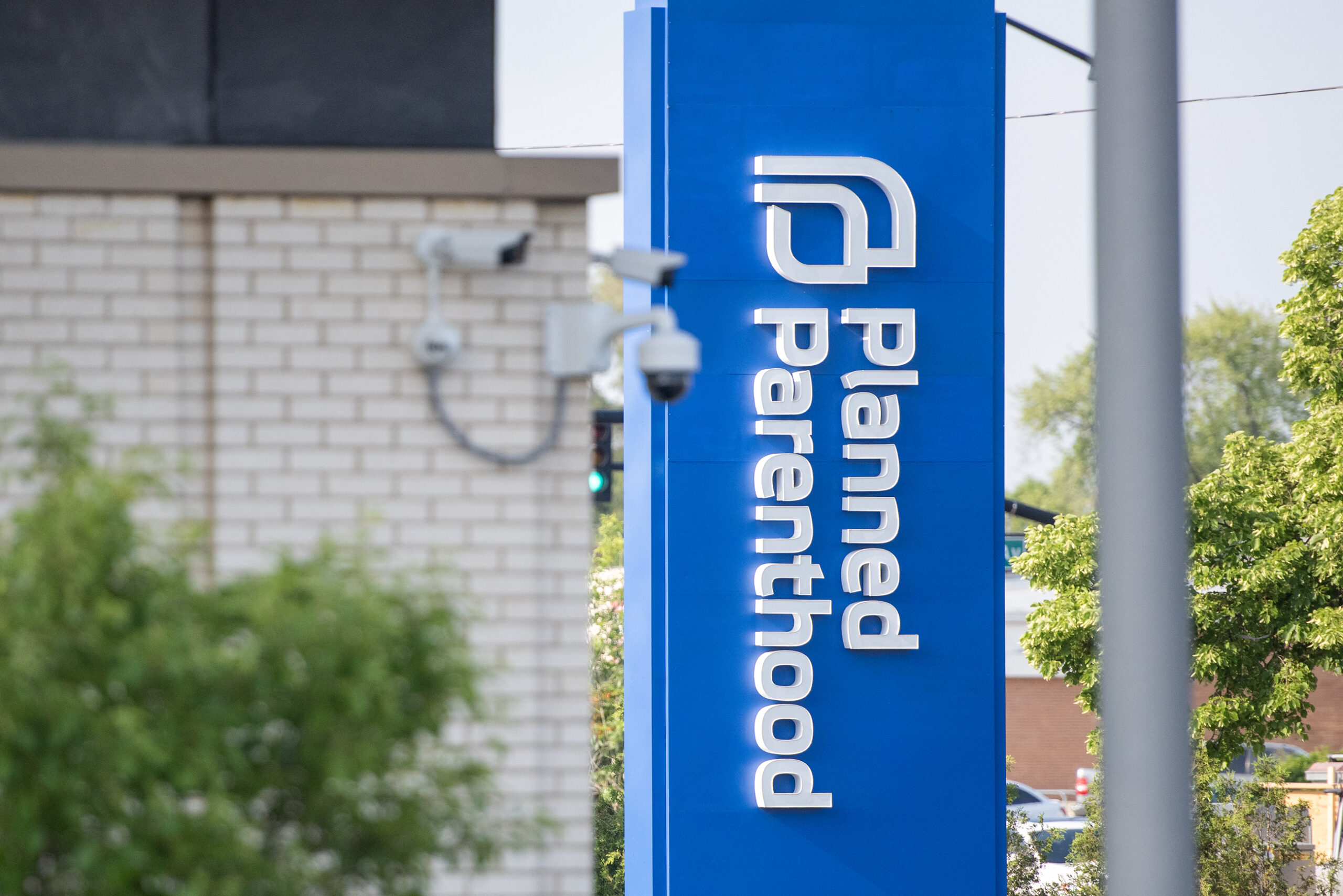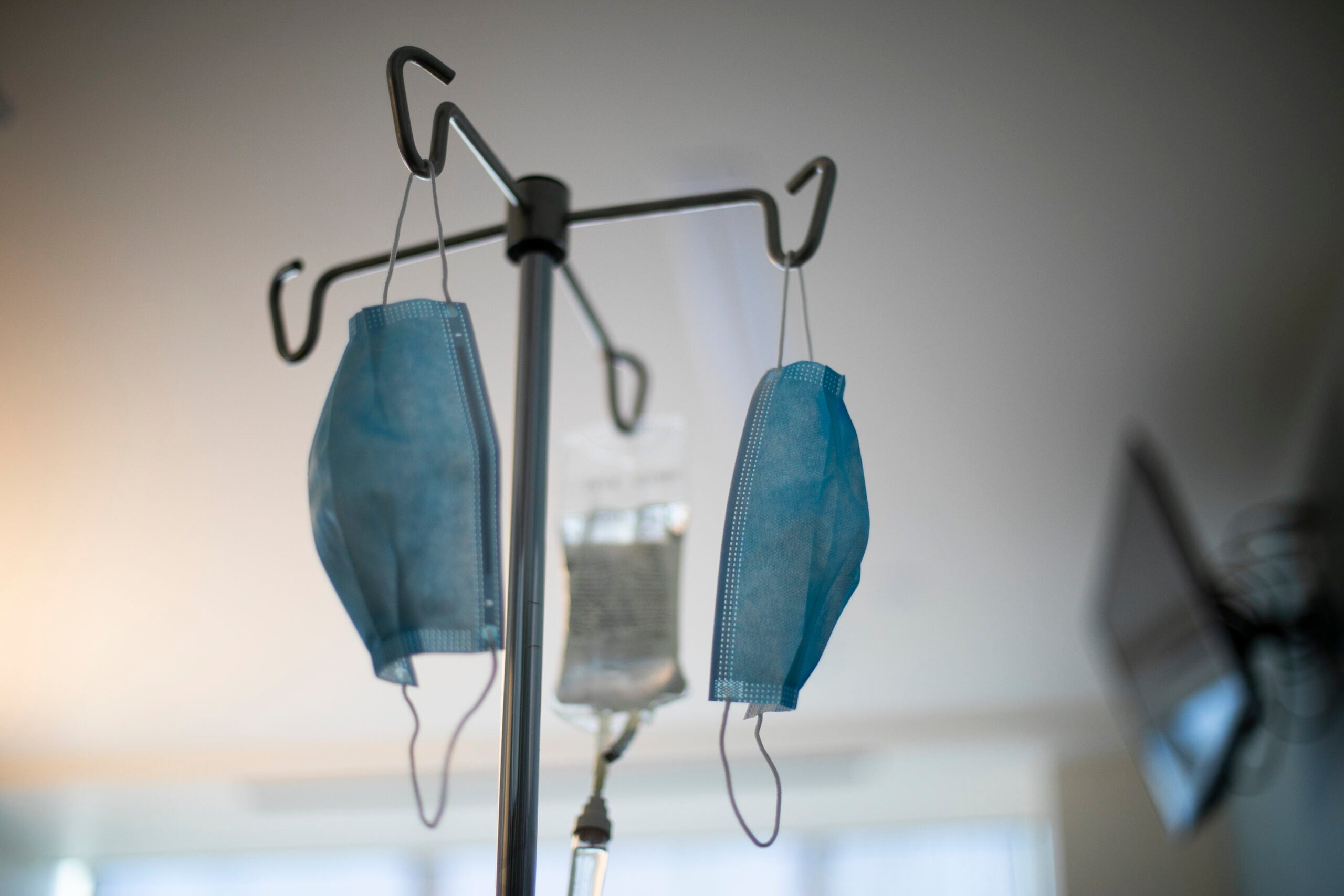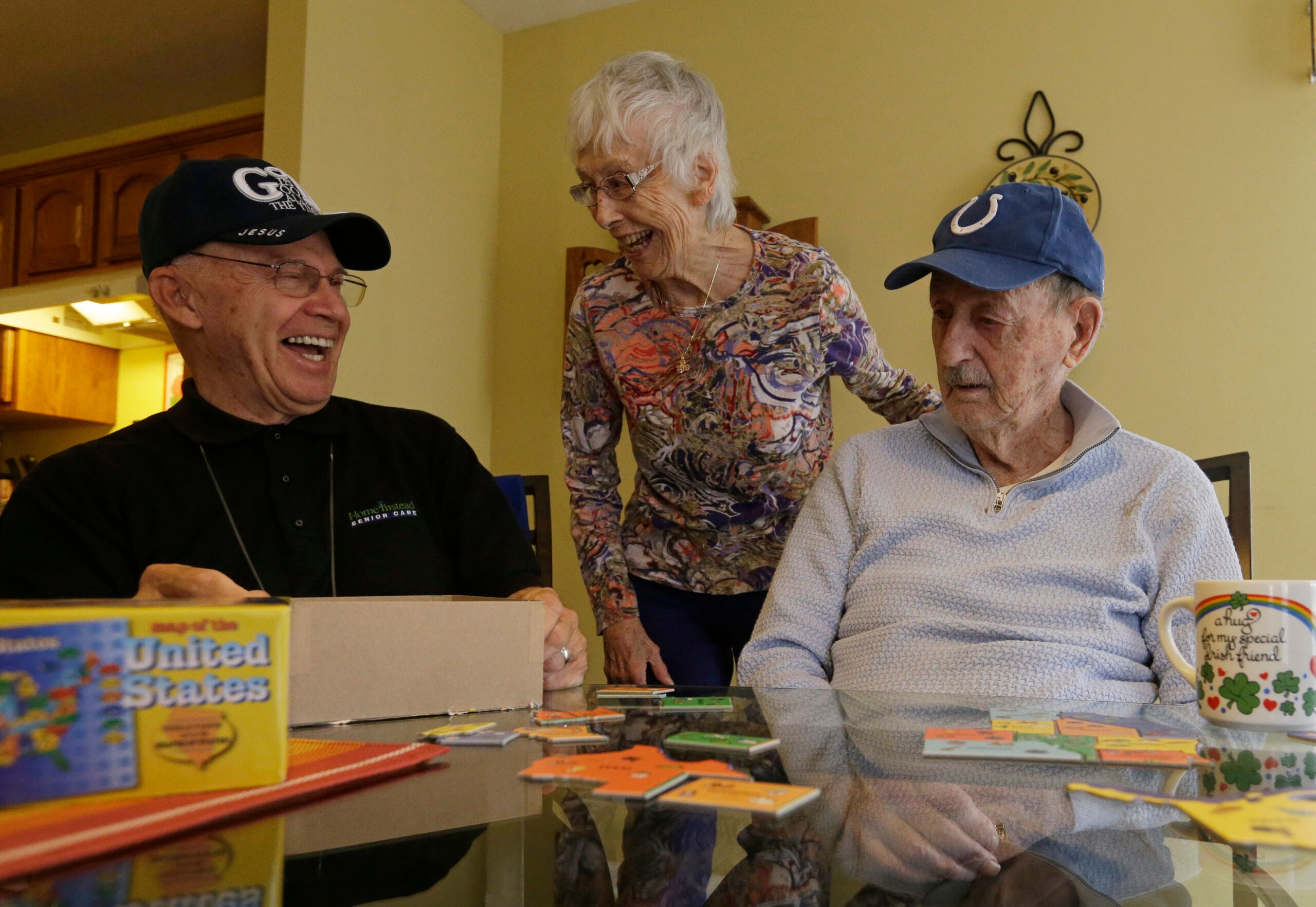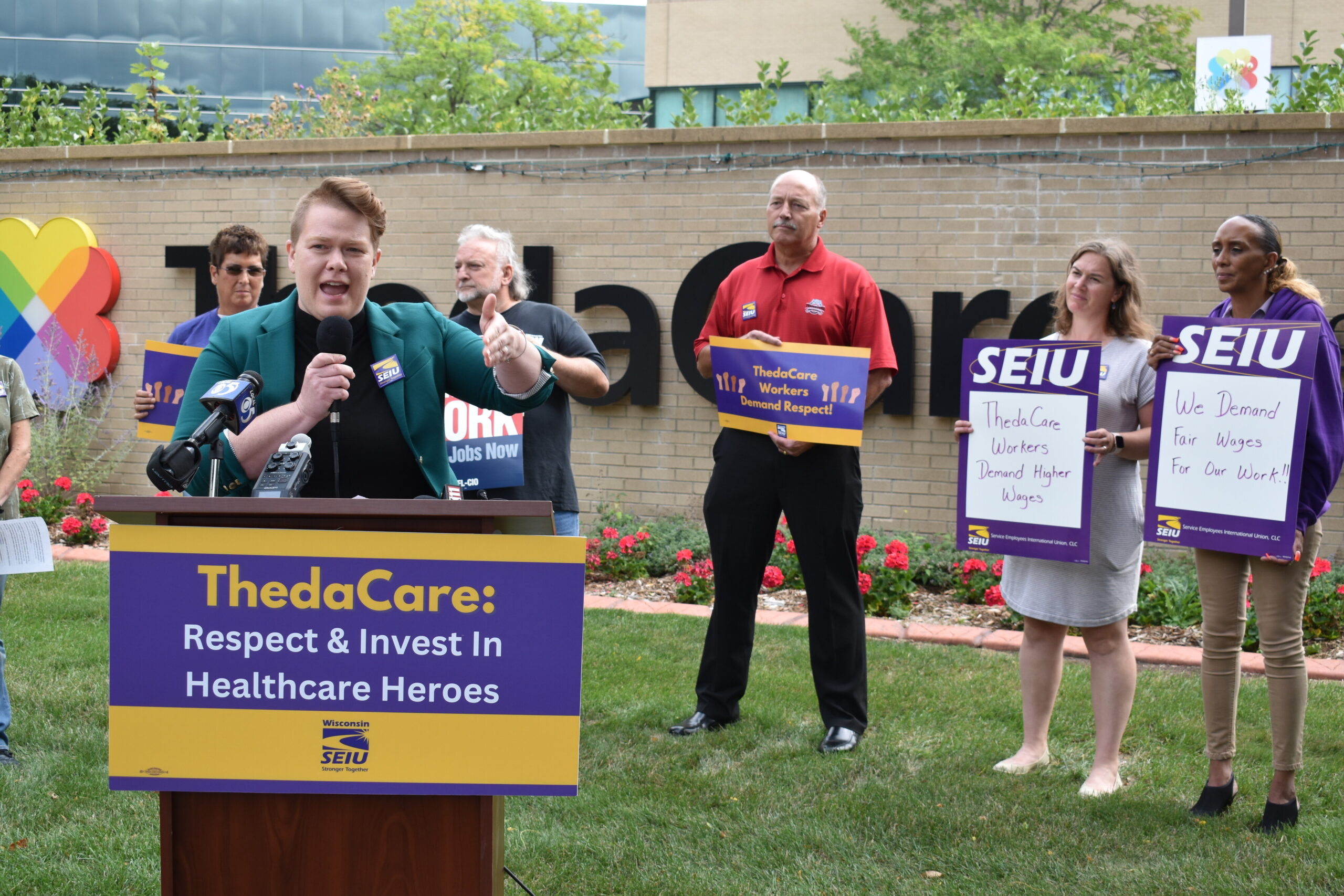Employees in Wisconsin hospitals and nursing homes are calling for lawmakers to back policies that would provide paid sick leave, adequate personal protective equipment, full medical coverage and hazard pay for those on the front lines during the coronavirus pandemic.
Nurses, paramedics, cafeteria workers and housekeepers in hospital settings described health and economic concerns they have for themselves and their families during a video conference Wednesday hosted by the labor union Service Employees International Union (SEIU).
Kathy Hintz cleans rooms at an Appleton hospital. Not long ago, she said she cleaned her first room where a patient infected with the disease died. She said she lacked adequate protective gear and is monitoring herself for symptoms of COVID-19.
Stay informed on the latest news
Sign up for WPR’s email newsletter.
“Since the COVID-19 pandemic started I live on pins and needles,” said Hintz, who can’t babysit her grandchildren for fear of infecting them.
“When I accepted this job as a housekeeper I didn’t ever think that it might mean I’d be signing my death certificate,” she said, bursting into tears during the teleconference.
On Tuesday, the Centers for Disease Control and Prevention released a report indicating more than 9,200 health care workers across the United States are infected with COVID-19.
As of Wednesday, more than 600 health care workers in Wisconsin have the disease, according to the state Department of Health Services.
According to DHS data, 17 percent of all positive COVID-19 tests in Wisconsin are infected health care workers. That includes a broad range of occupations in the health care field, including nurses, respiratory therapists, physicians, surgeons, physician assistants, health care support staff, emergency medical technicians and paramedics, dentists and other dental health workers, and pharmacists.
Rep. Robyn Vining, D-Wauwatosa, sent a letter to Republican leaders of the state Senate and Assembly earlier this week calling on them to support additional measures she said would benefit everyone, but especially those who care for others.
“As policymakers we owe it to the public, public health, and those frontline health care workers to provide for what they need,” the letter stated. “We have heard directly from health care heroes about the circumstances confronting them; now it is up to us to act on their needs and with the urgency the situation demands.”
Vining, who was on the teleconference with health care workers Wednesday, asked her colleagues to take action: to get and distribute more personal protection equipment; to assure health care workers who contract or are exposed to COVID-19 have fully paid sick leave; to mandate hazard pay for all those working during this time so workers are retained during dangerous conditions; and to ensure full medical insurance without any copay.
No specific legislation has been drafted. Vining’s office said they are working on the next steps to achieve the proposals outlined in the letter.
Health care workers said if they get sick and need to stay home, they worry about losing their job or missing out on pay they can’t afford to lose. Even frontline workers, like Justin Byers, a paramedic from La Crosse, who do get paid sick leave said the pay doesn’t match the amount they’d earn working.
Many acknowledged their professions have inherent risk but said the pandemic has pushed risk to sometimes unacceptable levels.
“As a paramedic, I respond to calls for help when people are dealing with an emergency. I chose this career because I wanted to help people and make a difference,” Byers said. “But this pandemic is not like anything we’ve ever prepared for. This virus is deadly.”
Byers said he was fearful of getting infected and passing it along to older colleagues who have medical conditions that make them more likely to get severely ill if they catch COVID-19. In addition, he can’t see his mother or other family members because his mother is being treated for cancer, and he has two siblings with cystic fibrosis.
Wisconsin Public Radio, © Copyright 2024, Board of Regents of the University of Wisconsin System and Wisconsin Educational Communications Board.

